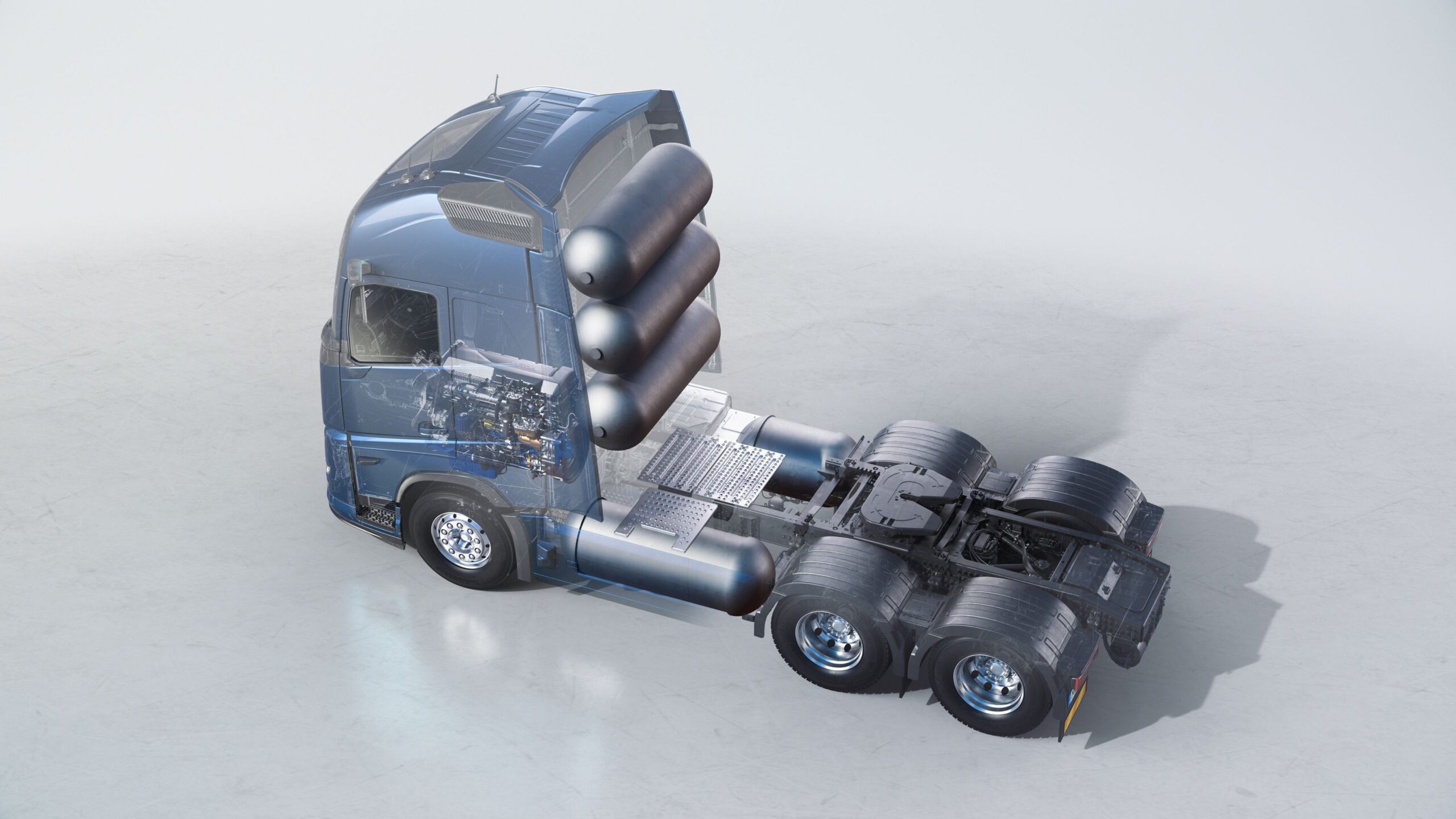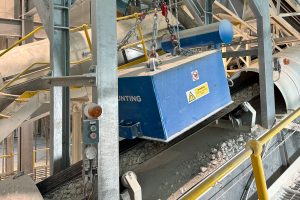Volvo Trucks is developing trucks with combustion engines that run on hydrogen. On-road tests with trucks using hydrogen in combustion engines will begin in 2026, and the global commercial launch is planned towards the end of this decade. Trucks that run on green hydrogen provide a significant step to Volvo achieving its net zero goal and supporting customers to reach their decarbonisation targets.
Trucks that run on green hydrogen instead of fossil fuels provide one way to decarbonise transport. Hydrogen trucks will be especially suitable over longer distances and in regions where there is limited charging infrastructure, or time for, recharging of batteries.
Volvo will begin customer tests with trucks using hydrogen in combustion engines in 2026, and the trucks will be commercially available towards the end of this decade. Already, testing in labs and in vehicles is ongoing. The hydrogen-powered combustion engine trucks will complement Volvo’s offering of other alternatives, such as battery electric trucks, fuel cell electric trucks and trucks that run on renewable fuels, like biogas and HVO (Hydrotreated Vegetable Oil).
“Trucks where the traditional internal combustion engine remains but runs on hydrogen will have the same performance and reliability as our diesel trucks, but with the added benefit of potentially low CO2 emissions whell-to-wheel. They will be a valuable complement to our battery electric trucks, which have been on the market for several years,” says Jan Hjelmgren, Head of Product Management and Quality, Volvo Trucks.
Volvo trucks with combustion engines powered by green hydrogen have the potential to deliver net zero CO2 when using renewable HVO as ignition fuel and are categorised as “Zero Emission Vehicles” (ZEV) under the agreed new EU CO2 emission standards.
“It’s clear that several kinds of technology are needed to decarbonise heavy transport. As a global truck manufacturer, we need to support our customers by offering a variety of decarbonisation solutions, and customers can choose their alternative based on transport assignment, available infrastructure and green energy prices,” says Jan Hjelmgren.
Volvo trucks with hydrogen-powered combustion engines will feature High Pressure Direct Injection (HPDI), a technology where a small amount of ignition fuel is injected with high pressure to enable compression ignition before hydrogen is added. The advantages of this technology include higher energy efficiency with lower fuel consumption, and increased engine power.
Volvo Group has signed an agreement with Westport Fuel Systems to establish a joint venture utilising HPDI technology. The joint venture is anticipated to become operational in the second quarter of 2024, following formal closing.
In South Africa there are a number of green hydrogen projects that are in various stages of maturity.
“Some notable examples are the ‘Hydrogen Valley’ feasibility study conducted by the DSI with partner companies, as well as the ‘Boegoebaai Hydrogen Cluster’ in the Northwest Province,” says Eric Parry, Senior Manager of Sustainable Solutions at Volvo Trucks South Africa. “Projects like these will enable the introduction and testing of hydrogen fuelled commercial vehicles in South Africa.”
Volvo Trucks believes that there is no single solution that can solve climate change. Local interest in sustainable transport solutions continues to grow, and the first movers in South Africa are companies that value their environmental impact and already have programs to reduce emissions.





![Data from the World Risk Poll shows that one in five (21%) people in mining and quarrying occupations have experienced harm at work in the past two years. [Photo by Shane McLendon on Unsplash]](https://quarryingafrica.com/wp-content/uploads/2024/10/shane-mclendon-89hUOLtVfoI-unsplash-300x225.jpg)
